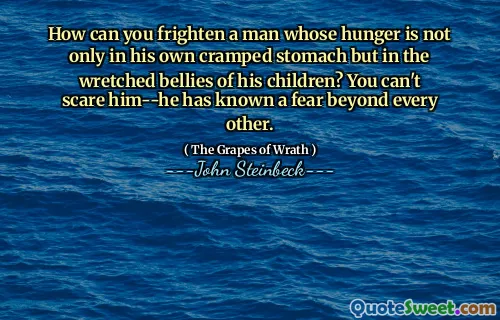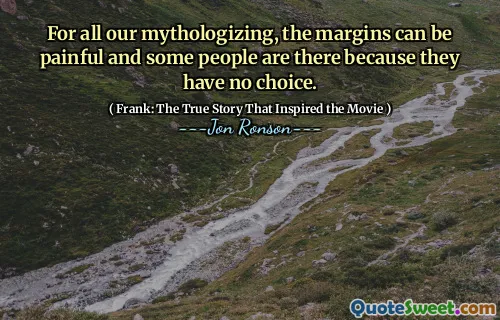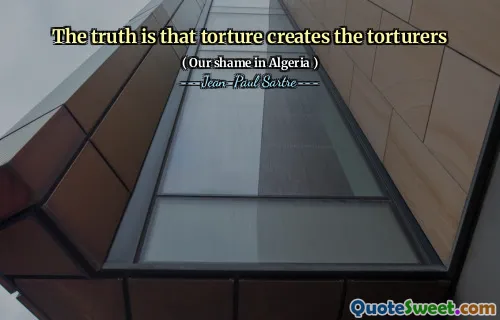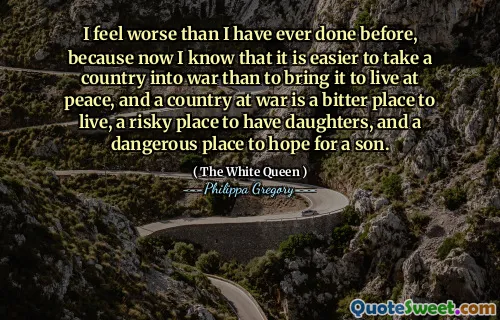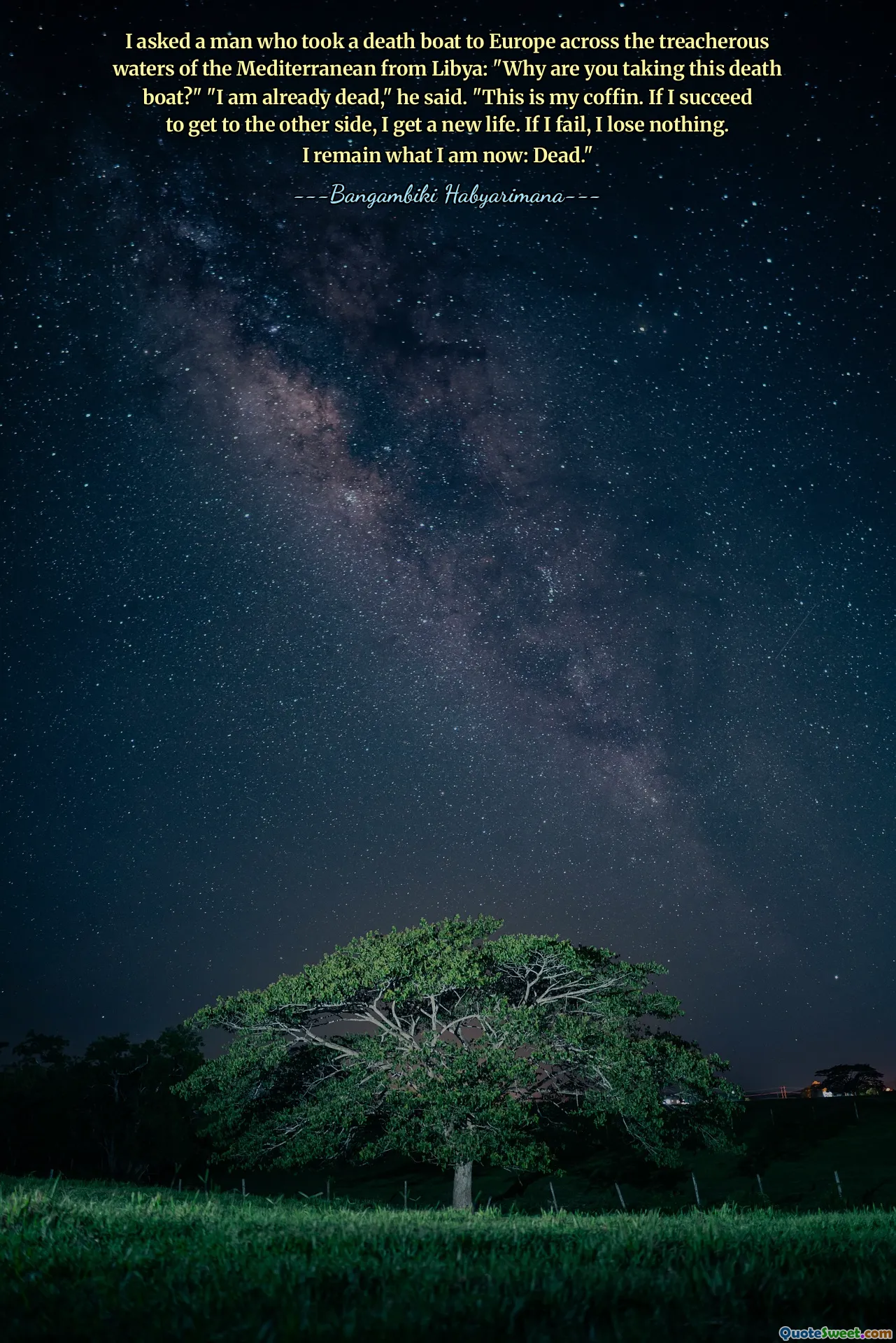
I asked a man who took a death boat to Europe across the treacherous waters of the Mediterranean from Libya: "Why are you taking this death boat?" "I am already dead," he said. "This is my coffin. If I succeed to get to the other side, I get a new life. If I fail, I lose nothing. I remain what I am now: Dead."
This poignant quote sheds light on the desperate and despairing decisions made by individuals facing unimaginable hardships. The man perceives his current state as a kind of death—an existence filled with suffering, oppression, and hopelessness, which has rendered him 'dead' in a metaphorical sense. His choice to risk his life on a dangerous voyage across the Mediterranean symbolizes a quest for liberation, a pursuit of renewal beyond the confines of his oppressive environment. It underscores the paradox of risk and hope; for him, failing to reach safety is akin to remaining in an already dead state, with no worse outcome than the suffering he endures daily. The Mediterranean, in this context, transforms into a treacherous boundary between what is and what could be—a liminal space representing both danger and possibility. His mindset reflects a profound resignation, yet simultaneously, an indomitable will to seek a better existence, even if it entails risking death. Stories like these remind us of the depths of human resilience, the power of hope amidst despair, and the tragic circumstances that drive people to undertake such perilous journeys. It challenges us to consider the societal and political conditions forcing individuals into such extreme choices, urging compassion, understanding, and a call to prevent such despair-driven migrations. Ultimately, this quote is a stark portrayal of desperation, hope, and the human spirit's relentless pursuit of life beyond suffering.







